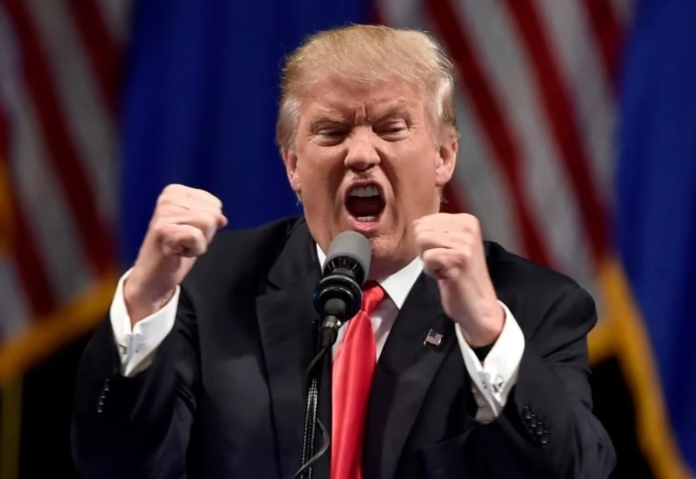**Breaking Tradition: NAACP Declines to Invite President Trump to Annual Convention**
In a move unprecedented in its long history, the NAACP will not extend an invitation to the sitting U.S. President, Donald Trump, for its upcoming national convention. The civil rights organization announced Monday that Trump would be excluded from the gathering scheduled for next month in Charlotte, North Carolina, marking the first time in 116 years that the group has omitted a sitting president from its annual event.
NAACP President Derrick Johnson revealed the decision during a press conference, stating that the action was prompted by his belief that President Trump’s policies and actions run counter to the organization’s core mission.
“This is not about political affiliation,” Johnson emphasized in a statement. “Our fundamental purpose is to champion civil rights. The current president, however, has made it evident that his focus is on dismantling those very rights.”
A request for comment from the White House was not immediately answered following the announcement.
The decision follows a period of increasing tension and legal challenges between the NAACP and the Trump administration. The organization has initiated multiple lawsuits against the President and his administration in recent months.
**Highlighting a key example:** In April, the NAACP filed suit against the Department of Education. The lawsuit challenged the department’s alleged withholding of federal funding from educational institutions that maintained diversity, equity, and inclusion programs. The NAACP argued this action unlawfully hindered efforts to ensure equal opportunities for Black students.
The NAACP underscored the significance of this exclusion by pointing to its long-standing practice of inviting presidents from *both* major political parties, even when significant policy disagreements existed.
**Crucially, the organization noted:** * Democrat Harry Truman was the first president to attend the convention, doing so in 1947. * Republican President George W. Bush addressed the group in July 2006. This occurred despite considerable criticism of his administration’s response to Hurricane Katrina in 2005, an event that disproportionately devastated Black communities along the Gulf Coast. * Republican President Ronald Reagan also accepted an invitation during his first year in office in 1981. This invitation came despite criticism over his use of the term “welfare queen” during his 1980 campaign, a phrase widely perceived as racially coded language targeting Black women. Notably, in his 1981 speech to the NAACP, Reagan condemned white supremacist groups and pledged to investigate and prosecute those who used violence or intimidation to deny Americans their constitutional rights.
NAACP officials stressed that the decision was made after careful consideration, recognizing the historical precedent of extending invitations even to presidents with whom they had contentious relationships or policy disputes.
However, they concluded that President Trump’s perceived stance and actions concerning civil rights represented a fundamental conflict that necessitated breaking with this long-held tradition. The exclusion is presented not merely as a political snub, but as a direct consequence of the organization’s assessment that the current administration actively works against the principles the NAACP was founded to protect and advance.

